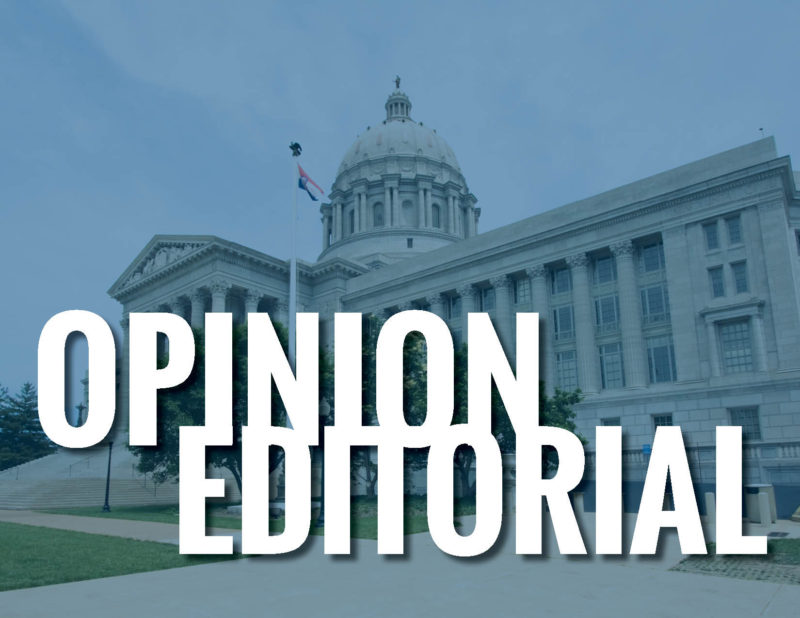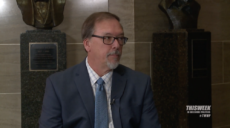This article originally appeared in the Fall 2019 edition of The Missouri Times Magazine.
The debate about the cost of Medicaid has raged since the beginning of government-run healthcare. It was exacerbated by “We Have to Pass the Bill So That You Can Find Out What Is In It“ Obamacare.
Originally, states were to be required to expand Medicaid, the impact on state budgets be damned. Fortunately, the Supreme Court rightfully ruled that it was unconstitutional, and Medicaid expansion became “optional.”

States that have expanded Medicare are struggling with patient outcomes. The impacts on state budgets have been significant. Estimates for participation have been grossly inaccurate.
We had an early warning from the Oregon Health Insurance Experiment (OHIE) that Medicaid expansion would not significantly improve healthcare outcomes and would increase costs.
Both of these outcomes are being experienced today in states with expansion. The outcomes vary somewhat by state, but the overall experience bears out the OHIE results.
Missouri taxpayers may be asked to shoulder the burden of Medicaid expansion, which will come at the expense of other state programs. It’s no surprise the effort is backed by hospitals that made the original unconstitutional bargain with the devil without taxpayers or their elected officials’ consent.
Now, they are trying to deceive voters into approving their bailout.
One of the biggest “sales” points is alleged “savings.” Data from other states show there is little to no savings. “States have consistently and grossly missed their expansion enrollment projections, already signing up more than twice as many able-bodied adults than they anticipated would sign up at any point in the future,” according to an analysis by Jonathan Ingram and Nicholas Horton. Third-party and federal government estimates have been grossly — some might say purposely — low compared to real enrollment numbers.
The optimistic projections are made by people who support increasing the burden on Missouri taxpayers. They stand in stark contrast to the projections from the state departments that actually run the program in the state. These departments implementing Medicaid daily, project an additional cost to the state of at least $200 million per year.
In Arizona, the Goldwater institute published a study showing: “Total charges for all payment groups (public and private) went up, but Medicaid charges in Arizona’s emergency departments alone, increased more than 300 percent.”
A recently released study from the Colorado Department of Health Care Policy and Financing shows that, although reimbursements to hospitals went up after Medicaid expansion, prices jumped even more. It’s not a surprise that the primary pusher of Medicaid expansion in Missouri is the Missouri Hospital Association!
We should be inclined to believe those who implement and manage the Medicaid programs daily over those who want expansion but are not responsible for its cost and have a track record of being wrong.
The proponents have already been tugging at emotional heartstrings through various planted articles. These articles are intended to distract from the fact that healthcare outcomes don’t significantly improve with expansion, but the cost to state taxpayers increases. The OHIE outcomes were proven accurate in a recent study of California’s Medicaid expansion, which found no “significant improvements in patient health” and “substantially greater hospital and emergency room use.”
Having Medicaid access does not guarantee timely access to healthcare providers. Studies have consistently shown increased use of emergency room services in states that expanded Medicaid. Adding more people to a broken system will only break the system even more.
You will also hear that by not expanding Medicaid, Missouri tax dollars are being sent to other states that have expanded. This statement is simply false propaganda.
If Missouri were to expand Medicaid today, NO state would receive less money for their expansion programs than they received yesterday. That’s not how the program works, and those who make such claims to the contrary are either ignorant of the facts or being blatantly dishonest.
Our country borrows money to provide for the ongoing services that we cannot afford. Missouri’s lack of expansion reduces that deficit, that borrowing, by not requiring additional borrowed Chinese funds be expended here. We should be looking for ways to reduce our spending, not increasing it.
Doubling down on ineffective Medicaid expansion is not the solution to rising costs and improving access to healthcare. Missouri should take the lead in reforming its Medicaid program by promoting affordable alternatives to traditional health care.
Short Term Limited Duration (STLD) plans is one example of what Missouri could be doing to promote alternatives. These plans became more viable after rule changes by the Centers for Medicare & Medicaid Services (CMS). Obamacare’s onerous mandates do not apply to these plans, which means they can be made available to citizens at a significantly lower cost than Obamacare plans. These are not long term plans but should be just one of the many available options presented to citizens who need them.
There will be a lot of discussion over the next few months on this issue. Don’t be fooled into buying the snake oil the proponents are selling.
Adding more people to a broken system will not fix the system. The Show-Me state should learn from the mistakes and successes of other states and develop a Medicaid program that actually provides access to services for the neediest among us and is fiscally responsible to those paying for it.
Medicaid expansion accomplishes neither.

Carl Bearden is the CEO of United for Missouri and a former Speaker Pro Tem in the House.





